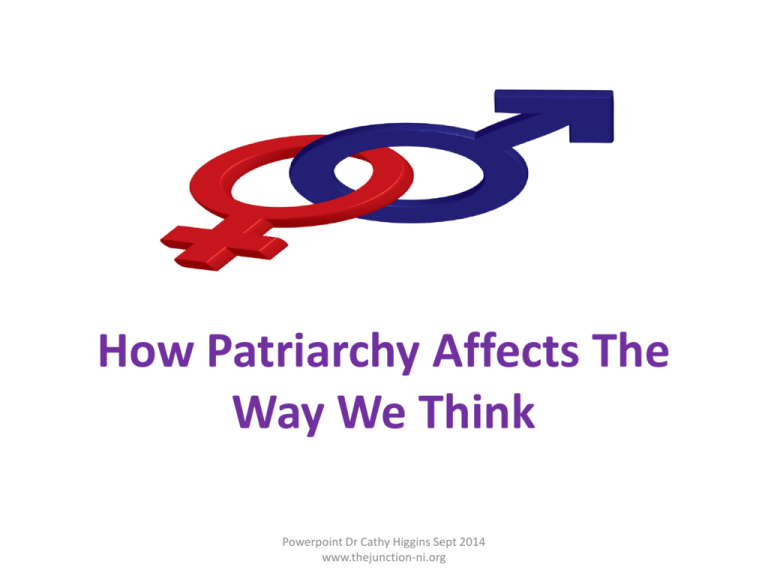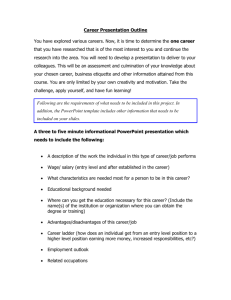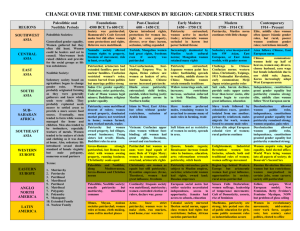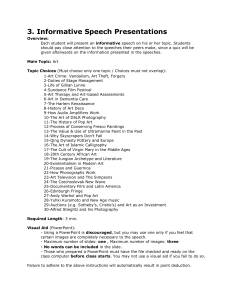
How Patriarchy Affects The
Way We Think
Powerpoint Dr Cathy Higgins Sept 2014
www.thejunction-ni.org
How Patriarchy Affects the Way We Think
What are the following cartoons saying?
What is your reaction to them?
Powerpoint Dr Cathy Higgins Sept 2014
www.thejunction-ni.org
Powerpoint Dr Cathy Higgins Sept 2014
www.thejunction-ni.org
Powerpoint Dr Cathy Higgins Sept 2014
www.thejunction-ni.org
Powerpoint Dr Cathy Higgins Sept 2014
www.thejunction-ni.org
Powerpoint Dr Cathy Higgins Sept 2014
www.thejunction-ni.org
Powerpoint Dr Cathy Higgins Sept 2014
www.thejunction-ni.org
Powerpoint Dr Cathy Higgins Sept 2014
www.thejunction-ni.org
Powerpoint Dr Cathy Higgins Sept 2014
www.thejunction-ni.org
How Patriarchy Affects the Way We Think
• Men are from Mars, Women are from Venus.
• If there was no bad women there would be no bad men.
• Men think with their penises.
• If she’s pretty and she’s sexy she must be dumb.
• Men need to be handled. If you know how to handle them properly you can
get what you want.
• The woman is here to take care of her husband.
• She must have slept with someone to get where she is
Powerpoint Dr Cathy Higgins Sept 2014
www.thejunction-ni.org
Patriarchy – A System
System
As we participate in social
systems we are shaped by
socialisation and by paths
of least resistance.
We make social
systems happen
Individuals
Source:
Allan G. Johnson, The Gender Knot: Unraveling Our Patriarchal Legacy, (Philadelphia: Temple
University Press, 2005), pp. 31-33.
Powerpoint Dr Cathy Higgins Sept 2014
www.thejunction-ni.org
Patriarchy – A System
• Patriarchy is a system which means it cannot be reduced to the
people who participate in it.
• The arrow on the right hand side of the diagram points up that as we
participate in social systems we are shaped as individuals.
• Through the process of socialisation we learn how to participate in
social life – from families, schools, religion, work place, mass media
etc.
• Through all of this we develop a sense of personal identity –
including gender – and how this positions us in relation to other
people, especially in terms of inequalities of power.
• Participation in social systems shapes our behaviour through paths
of least resistance – the conscious and unconscious choices we make
from one moment to the next.
Powerpoint Dr Cathy Higgins Sept 2014
www.thejunction-ni.org
Patriarchy – A System
• The more aware we are of what is going on around us, the more likely it is
that we can make informed choices. Therein lies our potential to make a
difference.
• The arrow on the left hand side of the diagram represents the fact that
human beings are the ones who make social systems happen. People then
can make systems happen differently.
• When people step off the path of least resistance they have the potential to
alter the way the system happens and thus shape people’s behaviour
differently.
• The patriarchal system may be larger than us but it doesn’t happen except
through us and that’s where we have power to change the system.
Powerpoint Dr Cathy Higgins Sept 2014
www.thejunction-ni.org
So what is Patriarchy?
• Patriarchy means ‘rule of the father’. A society or social system is
patriarchal to the degree that it promotes male privilege by being male
dominated, male identified, and male centred. It also involves the
oppression of women.
• To understand how patriarchy affects the way we think we need to consider
how it controls gender roles in society.
• Patriarchy establishes gender divisions. It attributes different characteristics
to men and women, and exalts male qualities as superior.
• Patriarchy elevates some men over other men; and all men over women.
Patriarchy is structured violence along gender lines.
• Patriarchy is an unjust system in which men and women participate, but
which men and women can change from within.
Powerpoint Dr Cathy Higgins Sept 2014
www.thejunction-ni.org
So what is Patriarchy?
Patriarchy teaches male and female natures are biologically different.
When gender roles are stereotyped these are the characteristics suggested:
Men are by nature:
•
•
•
•
•
•
•
•
•
Powerful
Assertive
Dominant
Competitive
Responsible
Logical and rational
Objective
Controlled
Sets boundaries
Women are by nature:
•
•
•
•
•
•
•
•
•
Supportive
Intuitive
Loving
Giving
Compassionate
Understanding
Nurturing
Emotional
Open boundaries
Powerpoint Dr Cathy Higgins Sept 2014
www.thejunction-ni.org
Time for a Story
When Mary McAleese was a young girl living in North Belfast the local priest called
to her house. He asked Mary what she wanted to do when she left school. Mary shared
her ambition to study Law. His instant response was to tell her to forget about it,
because she suffered from two disabilities which were, in his view, completely
unlikely to be overcome. One was that she was a woman, and the other was that she
had no connections in the law. McAleese recalls: “It was said with the kind of
dismissive authority which is intended to silence protest or debate. The owner of
superior knowledge, of real certitude, had spoken, and that was that.” What shocked
McAleese more was when in response her mother, who held the clergy in awe, pulled
the chair from under the cleric and propelled him to the front door before he had time
to uncork the bottle of baby Powers he’d been given. “ ‘You – out’, she roared at
him. ‘And you,’ she said to Mary, ‘ignore him.’ ”
McAleese went on to be among the first few women to study law at Queen’s
University Belfast. She became the first woman director of its Institute of Professional
Legal Studies and, in 1993, its professor of law. In 1994 she became the university’s
first woman pro-vice chancellor. And from 1997 to 2011 she acted as President of
Ireland. Clearly, following her mother’s advice, and ignoring that of a male celibate
cleric, was the way to go.
Source: Article by Patsy McGarry, Irish Times, 20 June 2014
Why did the priest think that law was an unsuitable profession for a young woman?
And what characteristics did he think women lacked that made them unsuitable?
Powerpoint Dr Cathy Higgins Sept 2014
www.thejunction-ni.org
An Illustration of Patriarchy
• Less than a third of Northern Ireland’s most important jobs are held by
women, despite women making up 51% of population:
- 35% of senior civil service posts are held by women;
- 5 of our top 100 businesses are led by women;
- Only 16% of positions at superintendent level within PSNI are filled
by women;
- Only 15% of QCs- most senior barristers – are women;
- Only 20% of N.I. Assembly seats held by women – the lowest
representation in any of the UK’s devolved or national legislatures.
- Men also dominate senior positions in judiciary, politics, health and
education.
Belfast Telegraph Survey, September 2014
Powerpoint Dr Cathy Higgins Sept 2014
www.thejunction-ni.org
Patriarchy exists where:
• Males dominate in positions of authority – political, economic, legal,
religious, educational, military... and therefore claim larger shares of
income and wealth.
• People are struck when a woman finds her way into a key public position
e.g. head of state, a corporate CEO, a religious leader, a member of
parliament, a judge, a university provost, a general in the military, or
security advisor...
• Male pronouns used to represent people in general ( man = human beings).
• Only two distinct genders: patriarchal heterosexuality is ‘normal’, same sex
attraction is not.
• Men made in image of male god with whom they enjoy special
relationship. Women cannot represent a male god.
• Women and the work they do, inside and outside the home, is devalued.
• Violence against women is pervasive: pornography, wife battering, sexual
harassment , sexual assault,
sexual
slavery,
female
genital mutilation.
Powerpoint
Dr Cathy
Higgins Sept
2014
www.thejunction-ni.org
An Illustration of Patriarchy
UN Report 2014
About 120 million girls around the world - slightly more than one in 10 have been raped or sexually assaulted by the age of 20, a UN report says.
Intimate partner violence is the most common form of gender-based
violence against girls. Globally, nearly one in three adolescent girls aged 15
to 19 (84 million) in formal unions have been the victims of emotional,
physical and/or sexual violence perpetrated by their husbands or partners.
Rates of partner violence are particularly high in sub-Saharan Africa, South
Asia, and Latin America and the Caribbean.
Among adolescent girls aged 15 to 19 who have ever been victims of
physical and/or sexual violence, about 7 in 10 said they never sought help
to end it. While the reasons vary, many girls said they did not realize that
what they experienced was a form of violence or did not see the abuse as a
problem.
What do these findings say about the effect of patriarchy on children and
young girls?
Powerpoint Dr Cathy Higgins Sept 2014
www.thejunction-ni.org
Patriarchy has been around for a long time!
Powerpoint Dr Cathy Higgins Sept 2014
www.thejunction-ni.org
Patriarchy has been around for a long time!
• Patriarchy has a long back-story in antiquity.
• Patriarchy is an historic creation that developed over 3,000 years in Ancient
Mesopotamia between 6,000 BCE – 3,000 BCE.
• It claims to be the natural way of the world and God given.
• To call patriarchy into question was unnatural and evil, which explains the
demonising of women who challenged the patriarchal status quo e.g.
Witch; and attempt to control women through promoting ideal model of
Virgin and Mother.
• Women needed to be controlled by men otherwise disaster would prevail i.e. Eve led Adam astray and all humanity suffered; Cleopatra led Anthony
astray and threatened the survival of Roman Empire, therefore both had to
be destroyed.
Powerpoint Dr Cathy Higgins Sept 2014
www.thejunction-ni.org
How Patriarchy Affects the Way We Think.
• Patriarchy has shaped cultural attitudes and practices and affects how we
think and behave, until we become aware of its presence and challenge it.
• The traditions, rules, and values of patriarchy, from the last six millennia,
are often taught or modelled to girls and boys by mothers who believed
they were helping their children to survive in a male dominated world.
• Consequently, the glass ceiling is not just outside us (e.g. caring for family
still seen as women’s priority), it is also within us (e.g. lack of confidence).
• “We all have an inner patriarch who controls us from the inside...from our
unconscious.” Sidra Stone (Psychotherapist)
• The inner patriarch operates in men as well as women, his voice is the
voice of our culture.
Powerpoint Dr Cathy Higgins Sept 2014
www.thejunction-ni.org
How Patriarchy Affects the Way We Think.
• The inner patriarch, much like outer patriarchy, wants to make women feel
safe by keeping them confined within old, well-defined boundaries so that
they will not be exposed to danger or disappointment.
• Women’s inner patriarchs trust and value men more than women, and
believe women should remain in an inferior position – if not in work, then
in relationships.
• The inner patriarch in women either questions women’s intelligence,
knowledge ,and abilities, or is concerned about women’s emotionality,
trustworthiness and self-discipline.
• The inner patriarch in men is proud to be a man, and claims natural
authority and privilege because of his gender. The patriarch within the man
expects to be listened to, and expects women to defer to him.
• The inner patriarch sees his job as protecting heterosexual relationships and
marriage, and through these the continuity of the culture.
Powerpoint Dr Cathy Higgins Sept 2014
www.thejunction-ni.org
The Martha and Mary Story – The Inner Patriarch
• There is a story in the Christian Gospels of two women called Martha and
Mary. Each deals with their inner patriarch in a different way. The well
known rabbi, or Jewish teacher arrives at the house with his friends.
• Martha immediately goes into overdrive to fulfil cultural obligations and
provide this group of men with hospitality. Her inner patriarch dictates her
actions. It’s telling her that it is her responsibility to make sure the men are
looked after. That their needs are paramount.
• Mary greets the rabbi as an equal and engages in a dialogue of equals. She
defies her inner patriarch who is telling her to help her sister in the kitchen.
She believes she has as much right to engage in a discourse of learning as
any man.
• Martha responds angrily to her sister and judges her actions as
inappropriate. Martha is controlled by her inner patriarch, while Mary
radically defies her. Which of the two women is more liberated?
Powerpoint Dr Cathy Higgins Sept 2014
www.thejunction-ni.org
Patriarchy and its affects!
Group Work Exercise
1. How has patriarchy affected the way you think, feel and act?
2. What would life look and feel like if patriarchy as a social
system ceased to exist?
Powerpoint Dr Cathy Higgins Sept 2014
www.thejunction-ni.org
Beyond Patriarchy
• Patriarchy, outer and inner, thrives on duality; i.e. Men and women are
basically different, with men superior in every way.
• If we look at the world through dual lenses we will always see an ‘us’ and
‘them’. Those in the ‘us’ category are always the good, the right, and the
just; whereas those in the ‘them’ category are bad, wrong and unjust and
therefore need controlled, contained, or worse, eliminated.
• Moving beyond patriarchy means recognising that each person has a
unique set of gifts to bring to the world, that are not determined by gender,
or any other divisive grouping.
•
It involves reclaiming those disowned parts of ourselves to become whole.
For women this might involve owning their inner authority and taking on
public roles and responsibilities; and for men it might mean owning their
vulnerability and facing their fears.
Powerpoint Dr Cathy Higgins Sept 2014
www.thejunction-ni.org
Plenary Discussion - Beyond Patriarchy
“ Feminist effort to end patriarchal domination should be of primary concern
precisely because it insists on the eradication of exploitation and oppression in
the family context and in all other intimate relationships. ...The transformation
of self, of relationships, [makes us] better able to act in a revolutionary manner,
challenging and resisting domination, transforming the world outside the self.”
(Bell hooks)
“Patriarchy [uses] gender to define men and women as fundamentally different
from each other ....Patriarchy depends on such divisions, because there is no
basis for men to dominate if we see the genders as fundamentally the same in
their common humanity. (Allan G. Johnson)
Does all change, including changing an unjust system like patriarchy,
have to begin with the self?
What difference would it make to human relationships if we did not
gender human qualities?
Powerpoint Dr Cathy Higgins Sept 2014
www.thejunction-ni.org







